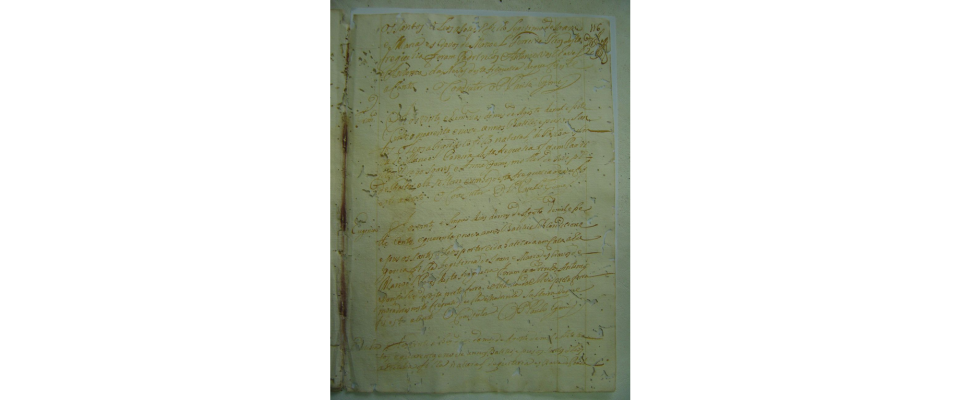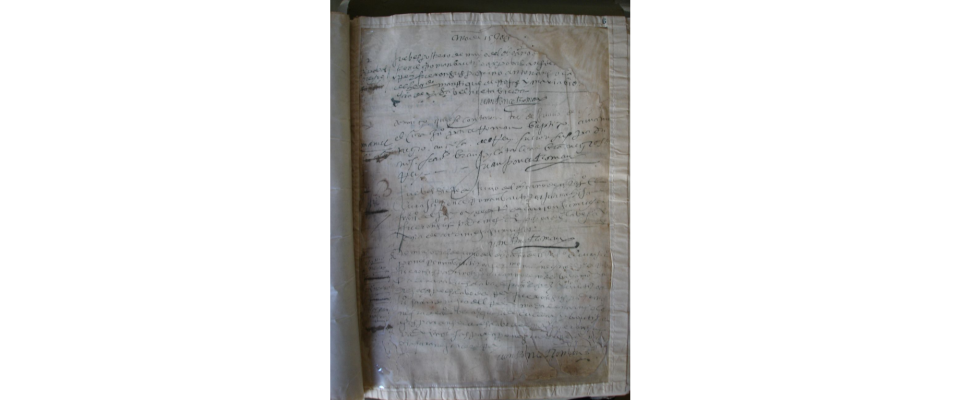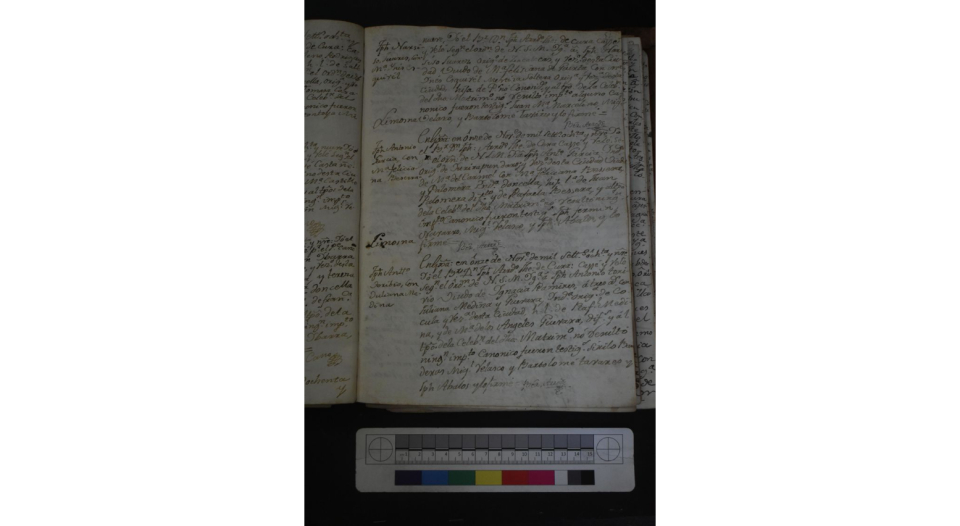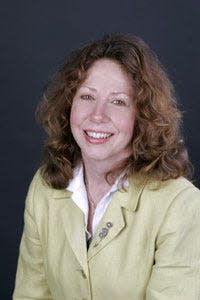Slave Societies Digital Archive: What Vanderbilt's new archive means for African history
Maria was born August 8, 1775, to Manuel Marques of Lisboa and Rita da Silva of Calonia del Sacramento. Joaquim, born April 10, 1777, was the son of Ana Joaquina.
These are a couple of the millions of African descendants whose records can be found at the Slave Societies Digital Archive (SSDA) at Vanderbilt University.
A grant received from the American Council of Learned Societies (ACLS) will allow minority students from Fisk University, Tennessee State University and Middle Tennessee State University to participate in the program digitally preserving the documents of Africans and their descendants in the western Atlantic.

Previously: Vanderbilt launches Tennessee's first master's of nursing degree
Read this: Vanderbilt Poll: More than half say Nashville is on the wrong track amid worries over growth
Records and their impact
Records dating back to the 1500s tell the stories of Africans and their descendants. They give the names, birthdates and cultures shared by families.
The records' physical condition reflects their ages and the harsh conditions of nature. The pages, some with holes in the middle, are turning brown and the edges are folded or tearing. The words are written in Spanish and Portuguese and begin to fade off the pages.
Though Vanderbilt is not the only place that has these collections, the university does have the oldest. Their collection includes records of baptisms, marriages, slavery, runaway slave notices and newspapers.
These collections give African descendants the chance to find their families. Executive director Daniel Genkins and director Jane Landers said that is what SSDA is used for mostly.
“We’ve received letters from people saying they found their families,” Landers said. “One doctor in D.C. found information on her family in Haiti.”


Record hunting and sorting
For Landers, this is a continuation of her work as a graduate student.
To preserve these records, teams of Vanderbilt University faculty and graduate students led by Landers travel to different counties that had the highest percentage of people from Africa during the transatlantic slave trade. The countries include Brazil, Columbia, Cuba and Angola.
After finding records, they take pictures and help locals find ways to preserve the physical copies.
After students have returned, records go through the digital process of machine learning.

Machine learning is programming a computer to code and read the images. Daniel Genkins oversees this process and explained that it is done in two parts.
One is taking the images and turning them into words. To do this, the computer transcribes the images, picking up on certain words and phrases. Since records typically have the names, dates and locations in the same places, it is easier to teach computers how to read them. Once that’s done, the second part is making important words searchable in the database.

Genkins wants students to know that this program isn’t just for computer science or humanities majors. Students are learning data science, software engineering, conceptual errors and coding.
“There are tons of other collections with similar sorts of information that would benefit from the ability to apply these techniques,” Genkins said. “We’re learning together, and it’s nice to do that.”
'This is going to get a lot worse': Tennessee grapples with fentanyl crisis as thousands die
For subscribers: Rising costs and stagnant wages are financially squeezing Nashville families unlike before
Expanding to undergraduates
The ACLS grant will focus on machine learning, specifically computer programming. The grant will allow students at Fisk, TSU and MTSU to travel to Vanderbilt to work on the project. They will have the opportunity to work with coding or transcribing the documents. At the end of the semester, Vanderbilt will hold a conference for students to show what they’ve done.

Landers and Genkins hope that extending this to undergraduates allows for more career opportunities.
Landers and Genkins are set to meet with ACLS and the other winners on July 1 to discuss the expectation for the grant. After that, schools will hear from Landers and Genkins about their specific plans for the program at the schools. This program is set to go into effect this fall.
You can visit the SSDA website here.
This article originally appeared on Nashville Tennessean: Slave Societies Digital Archive: Vanderbilt seeks to preserve history

